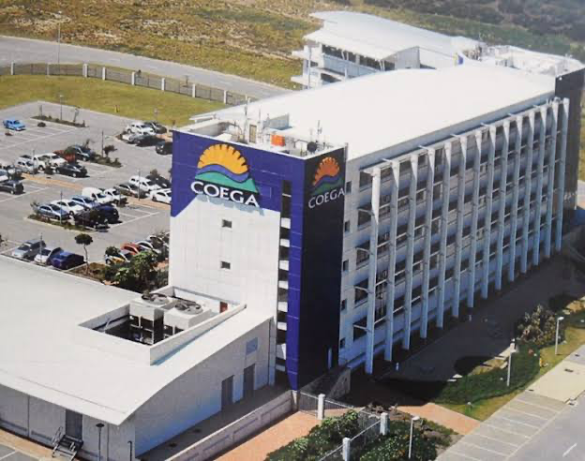The Coega Development Corporation has become the first state-owned entity to secure approval for a limited recourse capital transaction from the National Treasury. This decision paves the way for significant advancements in renewable energy within South Africa’s special economic zones. Located in Gqeberha, Eastern Cape, Coega stands at the forefront of this innovative financial undertaking. Its ambitious solar rooftop program aims to install solar panels across various industrial buildings within the Coega Special Economic Zone (SEZ) and the Nelson Mandela Bay Logistics Park. This initiative is part of a broader strategy to integrate renewable energy solutions into its infrastructure.
Meike Wetsch, the head of capital-raising at Coega, explained the strategic importance of this move. “Our goal is to ensure that our investors have dependable access to utility-scale green energy that is not only cost-effective but also predictable in pricing,” Wetsch stated. “This approach is crucial as global markets begin to favor businesses that can demonstrate a commitment to reducing their carbon footprints.”
The decision by the Treasury to allow limited recourse financing—a method commonly utilized in the private sector but a novelty in the public sector—marks an important development. Traditional public sector financing models typically require the Treasury’s backing, positioning the government as the ultimate guarantor. This shift, however, allows Coega and other state-owned enterprises to pursue large-scale capital investments that align with their developmental goals without imposing additional risks on taxpayers.
“This financing model redirects how financiers evaluate public capital transactions,” Wetsch added. “Rather than basing decisions primarily on the Treasury’s ability to ensure repayment, the focus will now be on the commercial viability and investment merits of the projects themselves.” Coega’s Capital Unit seeks to advance economic growth and raise export revenues through the creation and funding of significant capital investment projects. Coega is establishing a model for how public organizations can make significant, focused capital investments without jeopardizing private sector capital creation by supporting projects that are appealing enough for private sector co-investment.
The organization has proven its capacity to fund critical infrastructure and transformative investments that not only enhance the existing economic sectors but also catalyze the development of new ones. “These projects are vital for diversifying the economic base of the Eastern Cape and do not impose additional financial burdens on the public finances, crucial under the current national fiscal constraints,” Wetsch emphasized.
Coega now sets the standard for other public institutions, allowing them to raise finance for large-scale projects without requiring a Treasury guarantee, thanks to the Treasury’s permission. Since renewable energy projects have large upfront costs but considerable long-term rewards, this concept is especially relevant to them.
Wetsch further explained that financing projects on a limited recourse basis necessitates that these initiatives be commercially sound and capable of generating exceptional returns. “This discipline fundamentally changes our project origination, allowing us to present a solid, bankable capital investment pipeline to the markets,” she noted.
The trust in Coega’s strategic orientation is demonstrated by the good welcome it has received in the capital markets, both domestically and internationally. Leading investment banks in South Africa, foreign investment funds, and developmental finance organizations are among the financiers that currently support Coega because of its strong strategy for growing digital infrastructure, renewable energy, and high-value industrial innovation.
Furthermore, Coega plays a key role in facilitating the implementation of the Africa Free Trade Area Agreement by utilizing South African manufacturing, intellectual property, and financial services throughout the continent. Investors benefit from these initiatives by receiving superior returns and a less risky investment environment.
The $10 billion liquefied natural gas development in Cameroon, the multibillion dollar Boegoebaai port and train project, and the massive digital infrastructure initiatives spanning sub-Saharan Africa, including hyperscale data centers and connection projects, are some of Coega’s most important projects. These initiatives highlight Coega’s significance in promoting economic growth by positioning it as a digital entry point into the area.
“Our ability to undertake and manage large investments is demonstrated by the scope of our capital investment portfolio, which is consistent with our purpose to promote socioeconomic development while maintaining budgetary restraint,” Wetsch said in closing.



